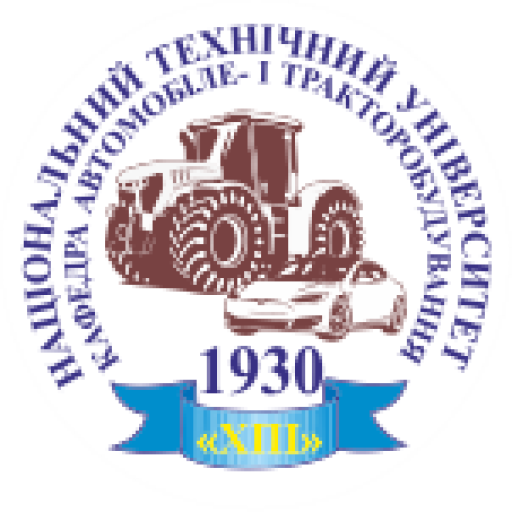NTU “KhPI” was established in 1885 and was then called the Kharkiv Practical Technological Institute. The first intake of students was 125 people: 85 – for the mechanical and 40 – for the chemical department. Today, NTU “KhPI” is one of the leading technical universities in Ukraine and confidently holds leading positions in the world ranking of universities Times Higher Education World University Rankings 2024. An important event in 2023 was the signing by the rector of the university of the updated Magna Charta Universitatum, which confirms the desire of NTU “KhPI” to integrate into the European educational and scientific community. The priority for the university is the development of international ties, the formation and implementation of new educational, research and innovation projects under the Erasmus, Horizon Europe, etc. programs.
The Department of Car and Tractor Industry was established in 1930 and was originally called the “Department of Tractor Industry”. You can learn more about the history of the department by clicking on the link. The teaching staff of the department includes 12 teachers, including 3 doctors and 9 candidates of sciences. You can learn more about the teaching staff of the department by clicking on the link. The educational concept of the Department of Car and Tractor Industry is based on the desire to become a recognized center of education, research and innovation in the field of transport. We achieve our goal by conducting advanced scientific research, cooperation with industrial and academic partners. We provide students with opportunities to realize their potential and develop their professional careers, and take an active part in the formation and development of modern approaches, methods and technologies in the field of transport. The department trains specialists in the following specialties:
The Department of Car and Tractor Industry offers full-time and part-time education in 2 bachelor’s and 3 master’s degree programs. All education is conducted in Ukrainian. Detailed information about educational programs:
The department has a student research group. More than once, the best works of students have been prizewinners of the All-Ukrainian competition of student research works. Publications of the department staff can be found on the personal pages of each teacher, as well as in the repository of the scientific and technical library of NTU “KhPI”. Twice a year, the department publishes the Bulletin of the National Technical University “KhPI”. Series: Automobile and Tractor Engineering, in which the department’s teachers publish their scientific achievements. Every year, students studying in the master’s program and postgraduate students take an active part in the work of the International Scientific and Practical Conference of Master’s and Postgraduate Students “Theoretical and Practical Research of Young Scientists” (Section 7. Mechanical Engineering and Transport Engineering).
The department teaches disciplines related to acquiring skills in designing, designing, calculating vehicles, modeling transport processes using modern application software packages, as well as substantiating the technology of manufacturing and testing equipment. The complex of disciplines contributes to mastering the effective organization, control and improvement of car maintenance processes, mastering new technologies, such as electric vehicles, autonomous driving systems, environmentally friendly fuels and others. You can learn more about the content of the disciplines through the syllabuses (a syllabus is a concise curriculum of the discipline, which includes the goal and objectives of the discipline, content modules and names of lesson topics, tasks for independent work, assessment criteria, a list of recommended literature) of each of the specialties, which are available on the department’s website at the link.

